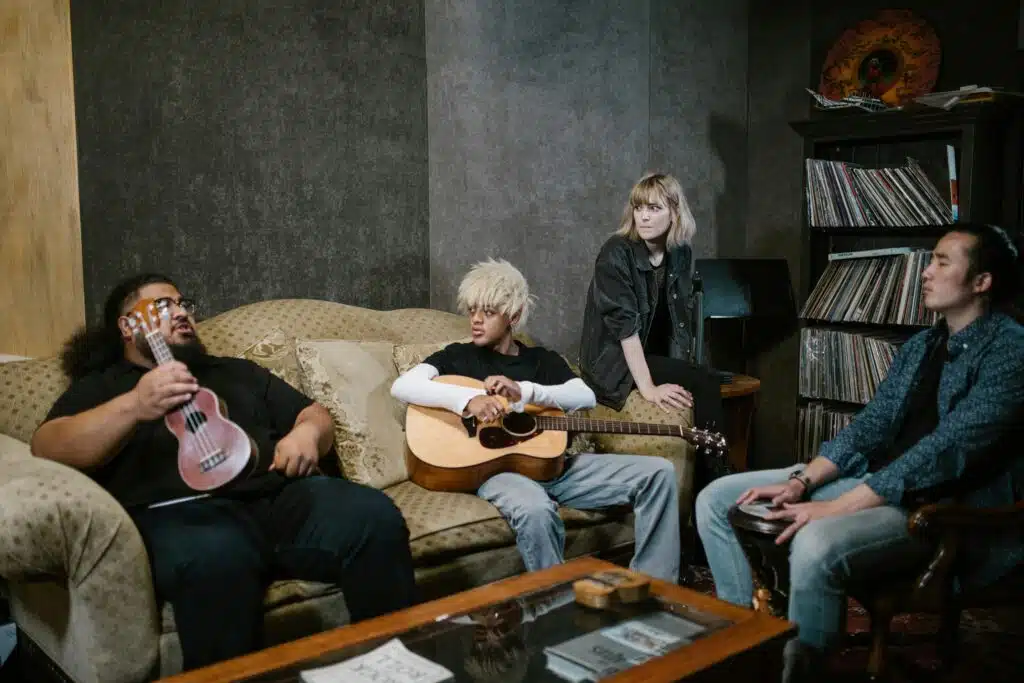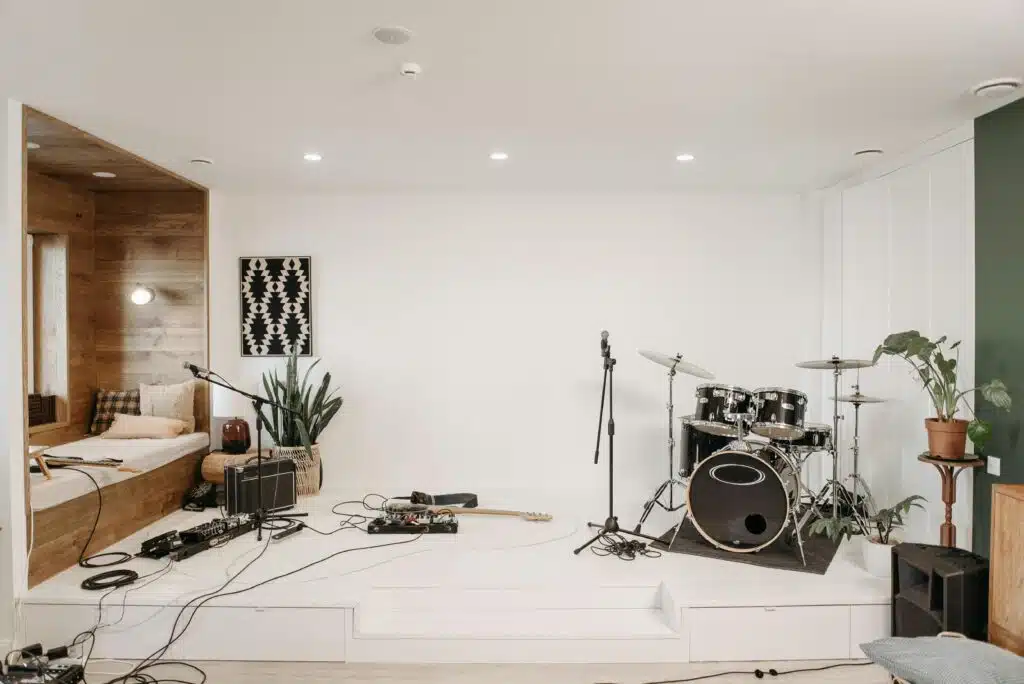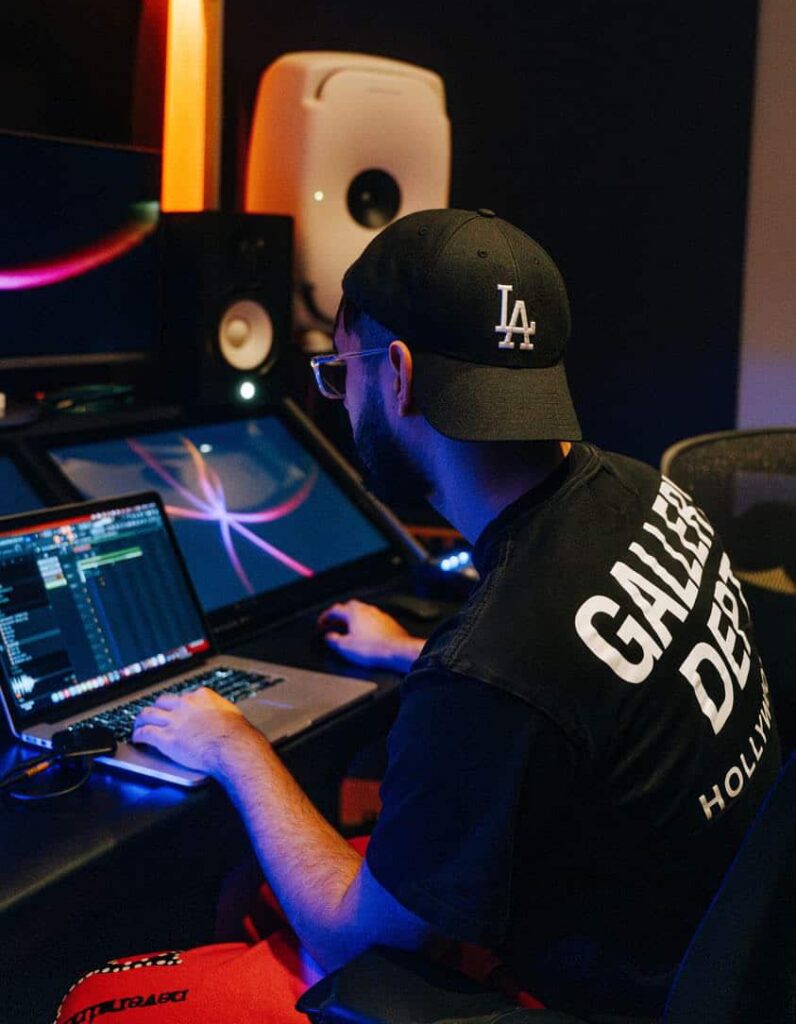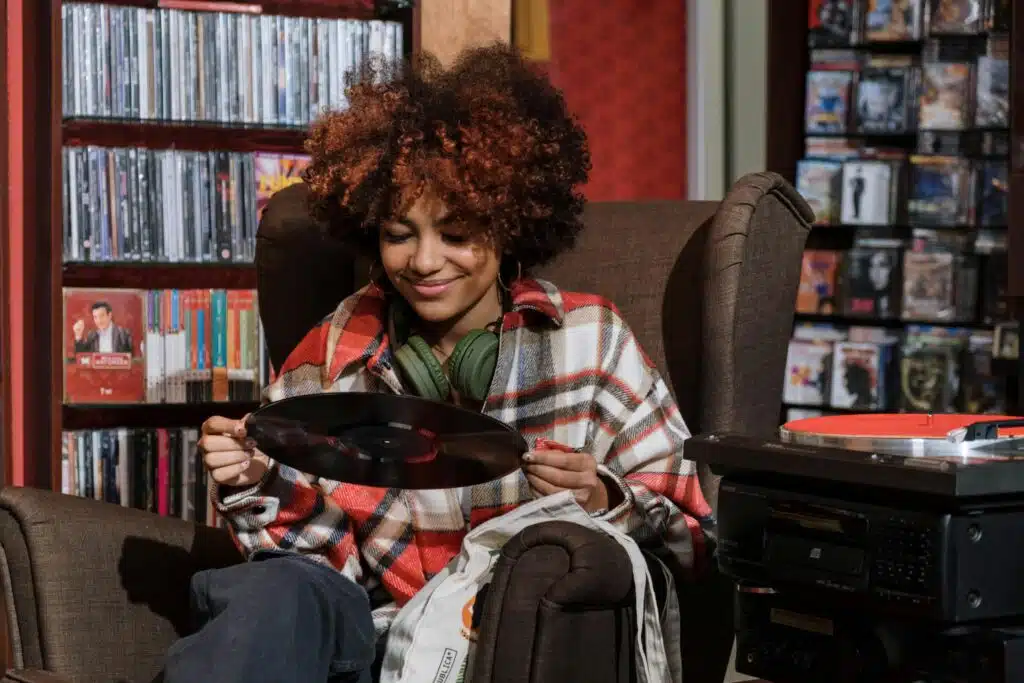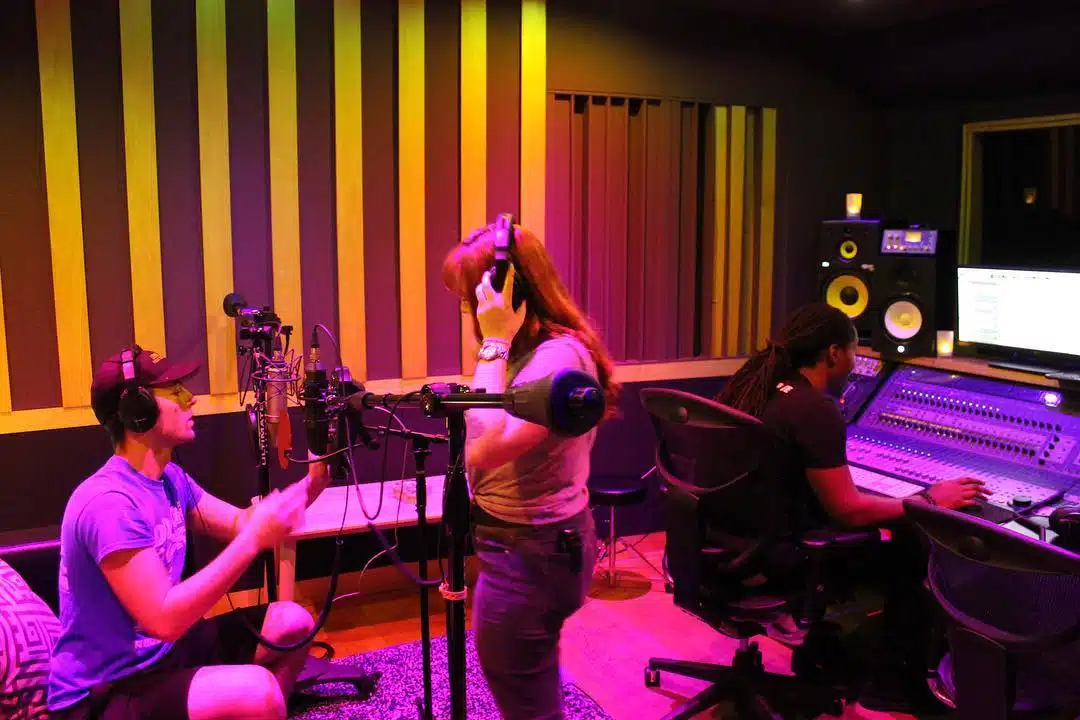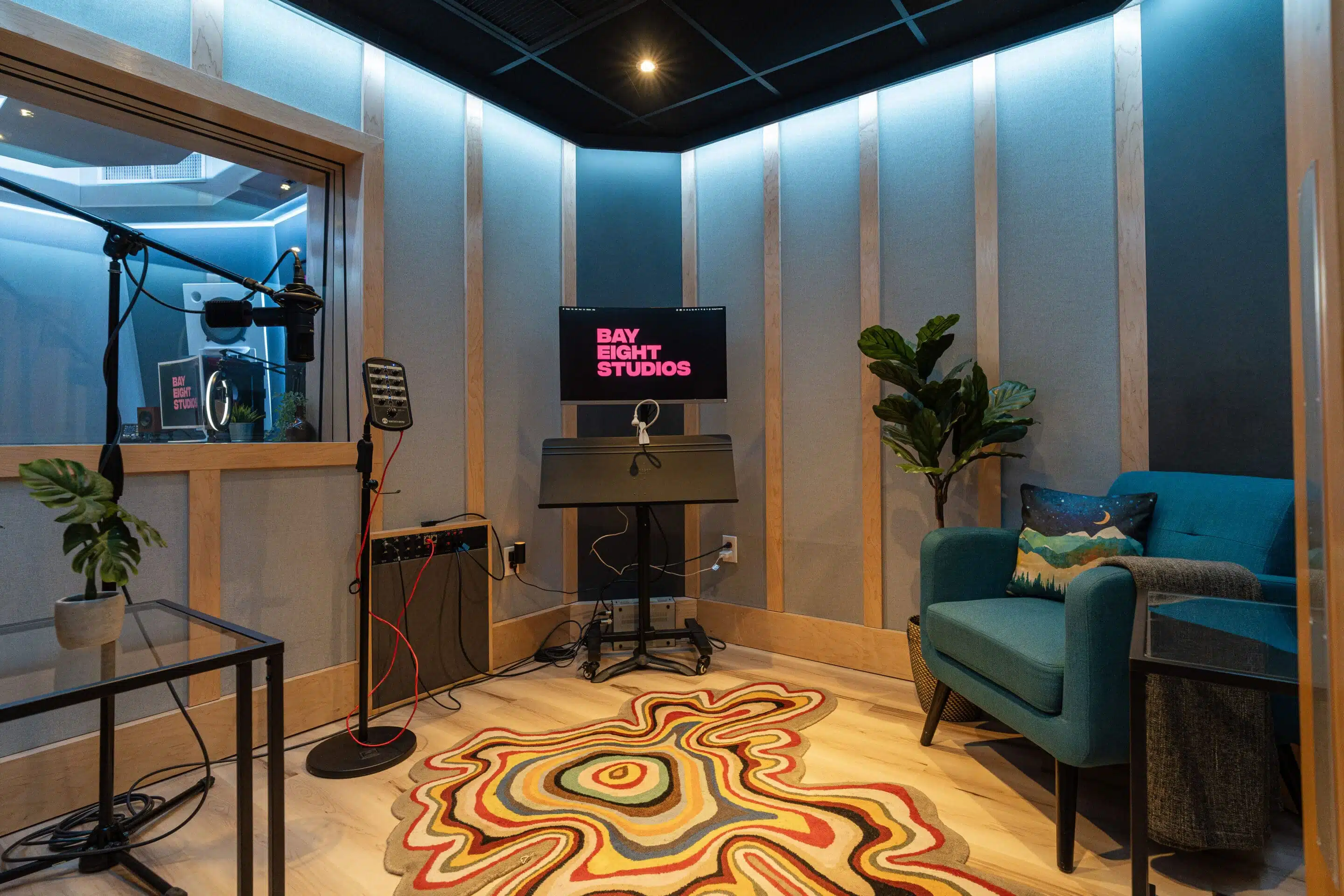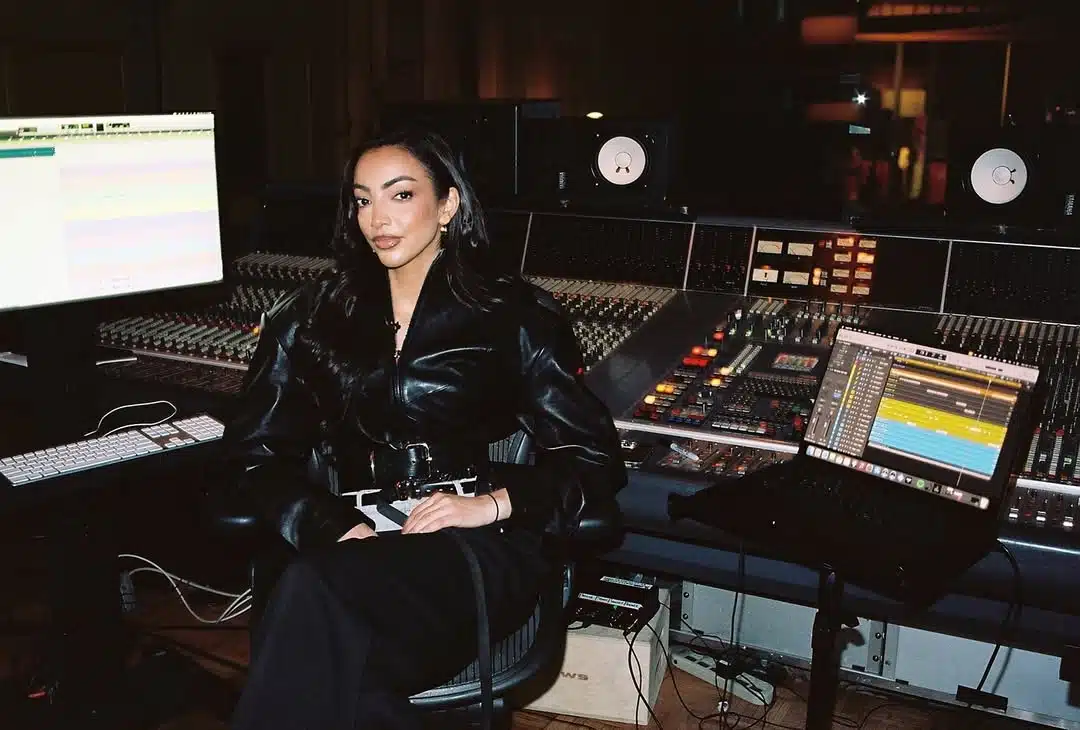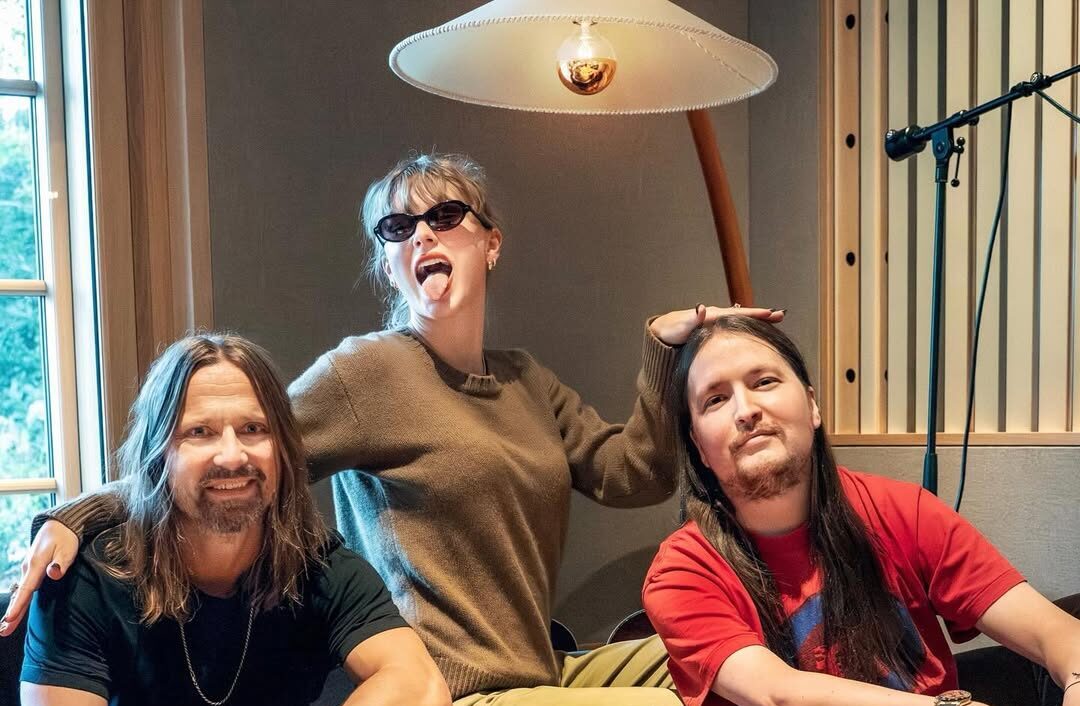Bay Eight’s studios aren’t just rooms, they’re launchpads. We’re happy to walk you through the full studio workflow and show you all the ways we can help your music succeed. In this article, we’ll cover the studio process, from recording to release.
Here is a sneak peek of what we have in store for you.
From Recording to Release:
-
-
- Songwriting
- Rehearsal
- Tracking or Recording
- Mixing and Mastering
- Distribution
- Promotion
-
Preproduction
First things first, you need a song! While most indie artists write their own music, you can also choose to work with a songwriter or even purchase a song via a platform like Soundbetter. If you’re a rapper, you may even consider buying a beat with a hook and backing vocals already on it.
Songwriting
If you do choose to write for yourself, know that there is no right way to start a song. While the process can feel intimidating at first, songwriting also allows you to create custom-made music and express whatever is on your mind. If you’re just starting out as a songwriter, it can be helpful to follow a few guidelines.
Try prompts like writing a song in the style of your favorite artist. Using rhyming words is also a great hack to help you get started. Follow a basic structure like verse, chorus, verse, chorus, bridge, chorus. You should give yourself parameters that will help you feel less overwhelmed by the endless possibilities of songwriting.
Rehearsal
Some artists go into the studio to write. Others work out all of the details of their song prior to arriving at the studio. The question of how you should go about the process depends on how much money you want to spend on studio time. If your budget is limited, you’re better off writing down your lyrics and practicing your melodies before coming in to record. While this process will help you familiarize yourself with your song, you also need dedicated rehearsal time.
If you’re in a band, you should spend a few hours practicing together before you come into the studio. Any instrumental parts you plan to record need to practiced, ideally to a click track to ensure you have the timing down. Instrumental solo parts, ad libs, and harmonies should all be rehearsed. Test recordings can serve as a “dress rehearsal.” A recording is forever. You don’t want to be listening back later and wishing you had done your whole performance differently, or wishing you’d sang a certain part better.
Production
The production process can begin after your song is written. However, many artists write to a track. If you’ve done the latter, you will need to send these tracks to your engineer. If you have written a song acapella or with basic instrumentation, you will build most of the track in studio. Know that there are many ways your music studio and engineer can support you from recording to release, so it’s worthwhile to begin investing in those relationships as you start the production process.
Tracking or Recording
If you’re lucky enough to have the producer in the room with you as you record, you get the benefit of being able to make adjustments to your track. In this case, recording vocals and making changes to the track can happen almost simultaneously. As this video shows, you don’t need much equipment to release quality music these days. If you’re working with a seasoned producer or engineer, you can even get a whole EP done in a matter of days.
For a more in-depth look into the recording process, check out this article.
Mixing and Mastering
Mixing and mastering is an essential step for getting your recording ready to release. During the mixing process, the puzzle that is your song is unscrambled and reassembled. Each individual track gets special attention, all in the name of ensuring all the elements complement each other when put together.
Mastering engineers focus on making a whole project sound cohesive, which includes paying special attention to the transitions between songs. At Bay Eight, we offer mixing and mastering services separate from the recording process. We’re happy to be part of every aspect of your music-making, or simply jumping in for specialized services.
Release
Congrats! You’ve come from recording to the release process. You’ve already done quite a lot of work, but the steps you take from here on out will have a major impact on whether your music reaches its audience.
Name your song if you haven’t already. You will also need a cover image. Good image quality is essential, but the options are pretty much endless. You can choose a photo of yourself, something that references the title of your song, or something completely random. Most of your release process will probably be focused on digital media, but you may also choose to release your music physically. It’s easier than ever to release your music via physical media like vinyl, CDs, and cassettes, even as an indie artist.
Distribution
Which distributor is right for you? Before you commit to one, be sure to do your research. This part of the process will be dependent on your individual distributor’s requirements. However, many parts of the process are similar across distributors. You will need to upload information about your song like genre, record label name, collaborators, etc. You will be asked questions like “what language is your song in?” and “are your lyrics explicit?”
Be sure to read the fine print regarding payment and policies for speedy approval. This will also help you avoid your music later being taken off streaming platforms for copyright issues, mislabeling, or illegal promotion tactics.
Promotion
Thanks to the digital age, there are a lot of ways to promote your art, and you don’t even have to leave your apartment to do it. Your own social media platforms are, of course, the easiest way to start. Depending on the amount of time and money you have to spend towards promotion, you can go further by reaching out to blogs, radio stations, and even influencers. Reach out to local magazines that may be willing to interview you, email cafes so see if they will host your performances, or go old school and put flyers up all over town.
Promotion can be a full-time job on its own. That’s why it’s important to consider that the more people you have involved in your project, the more people who are invested in promoting it. From the recording studio to the graphic designer you hire to do your artwork, collaborating is a great way to build a network and get more people invested in your success.

